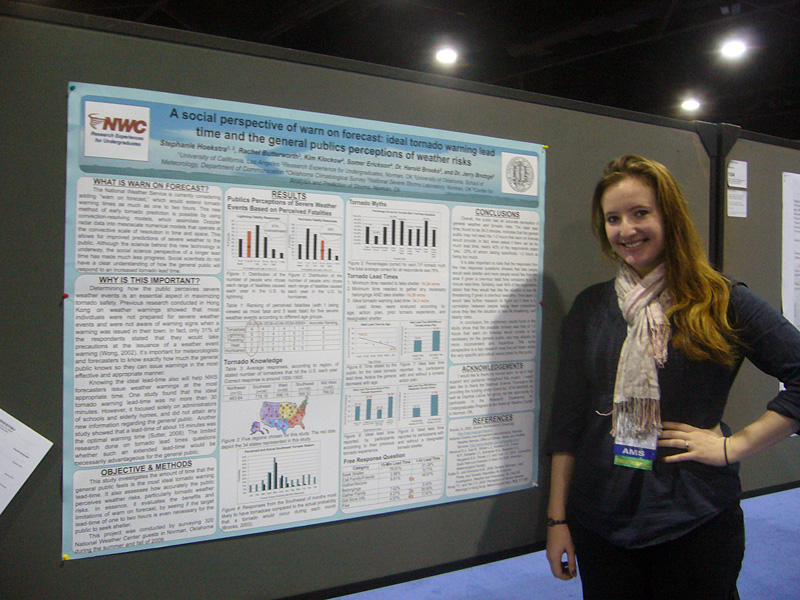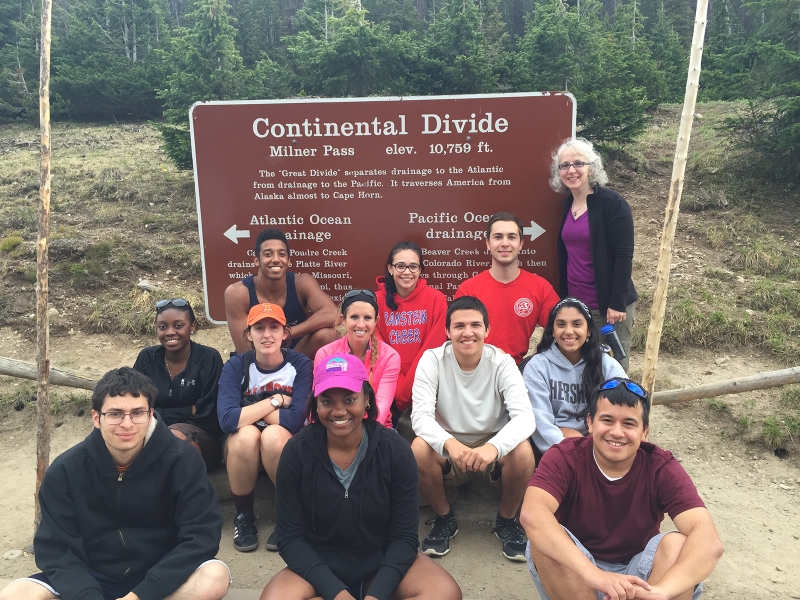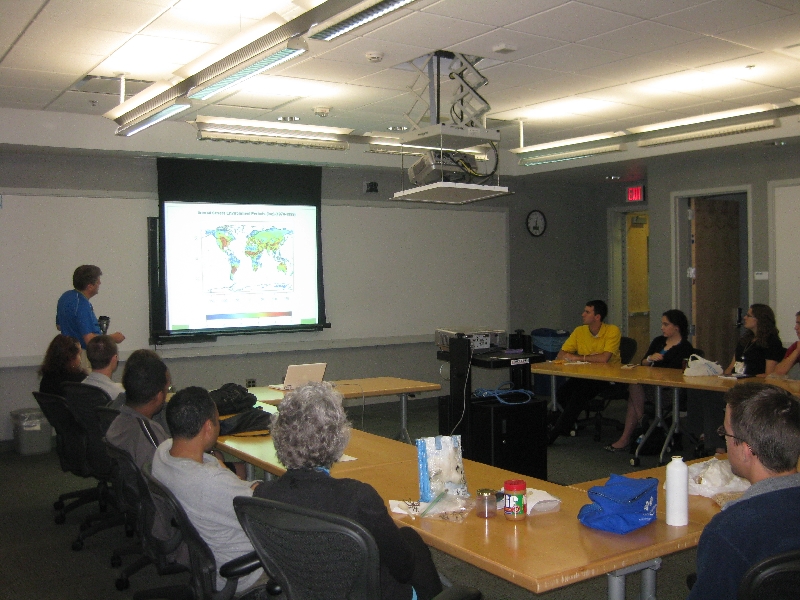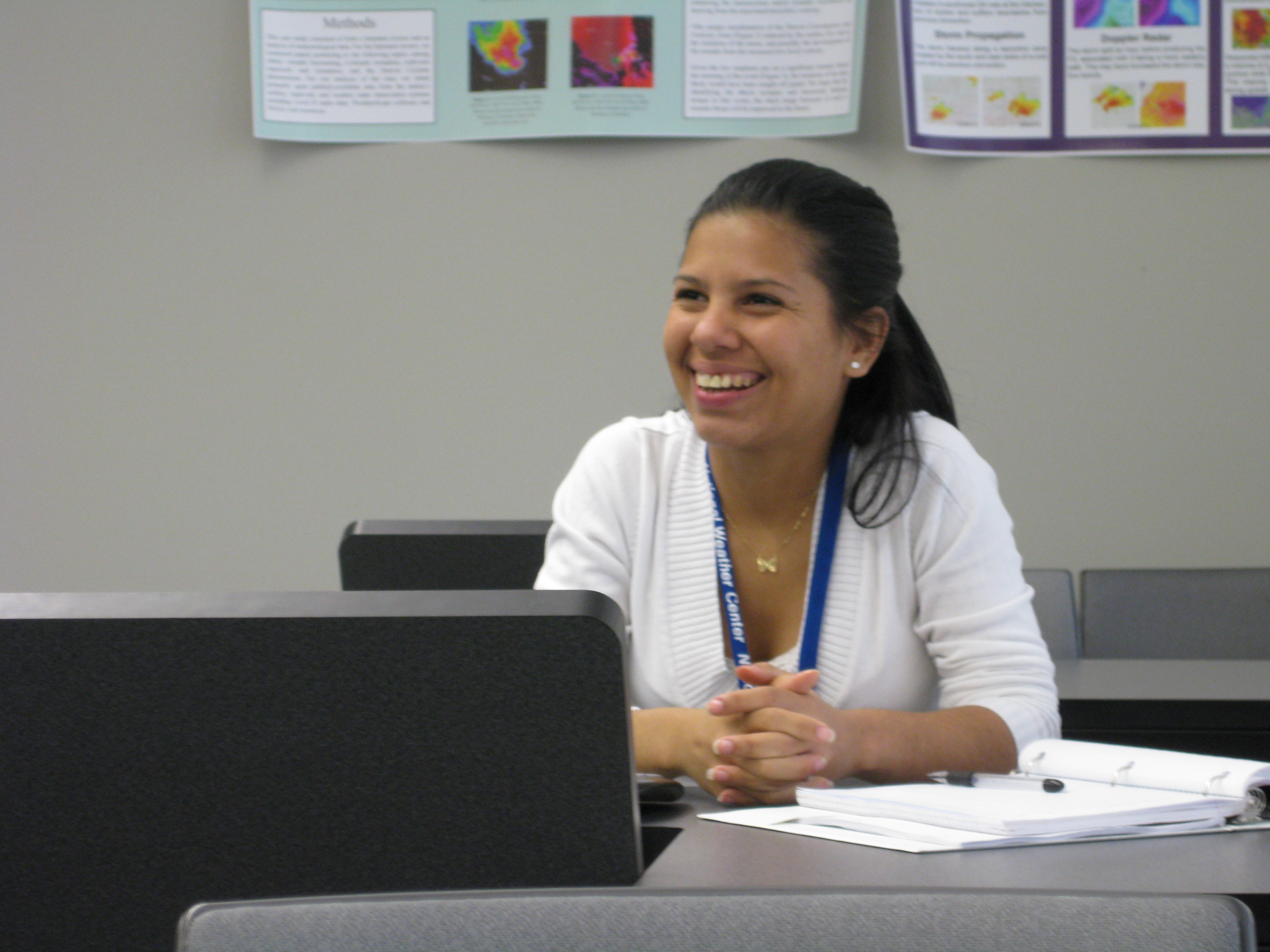



Application FAQ
Application Q&A
On Research and Skills:
What if I don't already have research experience?
Will I still be seriously considered?
Yes! Absolutely! Most of the students we select have no research experience and most are still building computer skills, too. NSF's goal in funding REU programs is to provide more undergraduate students with an opportunity to try research. We will help you build the skills you need to do your project.
About Housing and Workplaces
Are your housing and workplaces accessible?
OU's Research Campus buildings were all built after 2006, meaning they should meet ADA accessibility requirements. But further, we have had scientists or students with various physical disabilities and took care to consider their needs and to work with them to assure that they had a good and safe experience. Please raise any concerns you might have, at any time (you can wait until acceptance decisions have been made), and I will work with you to assure a good experience here.
We have resources on campus including our Disability Resource Center to help us assure that students have a good experience here.
On Eligibility:
What does it mean to be enrolled in a degree program? Do you mean taking classes during the summer?
No, I don't mean taking classes over the summer. What this means is that you cannot graduate before you participate in the program; thus, the soonest you can be planning to graduate is December 2026 if you want to participate in summer 2026.
However, there is a caveat: You may graduate from an associate's (2-year) degree and still participate so long as you are enrolled for the fall of 2026 to continue your schooling for a 4-year undergraduate degree.
Do I need to / can I take classes during the summer?
Taking classes during the REU is strongly discouraged. Part of the point of participating in an REU is to see what a career in research would be like. It is essentially a full time job. Plus, it is mentally demanding. You'll be learning new research skills and a lot about your particular research topic.
On Essays:
What are the characteristics of a good
essay?
A good essay doesn't just state a thing, but explains the thing. I can't emphasize that enough! We don't know you, and we don't know what you mean. For example, if you say, "I think I will like research," we'll be left wondering why you think you'll like research. Please explain with something like, "I think I will like research
because of x, y, and z."
How long or short can my essays be?
We specify a maximum number of words for each essay. Edit your essay until you can do a good job explaining your thinking within that word limit. Take advantage of the space and make sure you write a good essay.
I've never written these kinds of essay before. How do I start?
In the appropriate question, be honest about why you want to apply to our internship. Undergraduate research experiences are very beneficial to students. But we already know that, so while it is worth reviewing, don't echo what you read there. Make sure to write personal essays that directly address the questions.
On Calculating Your In-major GPA:
How do I calculate my in-major GPA?
For this we only want to see your GPA in the major courses only, by which I mean only the courses that have your academic department as the identifier. Is your major Meteorology or Atmospheric Science? Then only use the courses that have METR or whatever your school uses. Is your major Engineering? Then only ENGR courses. Your in-major GPA gives us a quick look at how you're doing in the courses you are the most interested in.
About Reference Letters:
Who should I ask for a reference letter?
Think about who could best speak to your readiness and ability for what you are applying for. For this REU program, you'd want to think about asking professors in your major classes or classes that are closely related to your major. For most applicants (STEM majors), that would mean math and science classes. For other majors, use the same reasoning: choose professors in your major or related classes.
We know reference letters can take quite a bit of time and energy to put together. We will reach out to a subset of applicant references AFTER we have gone through the initial selection process, so not all references will be contacted. We will contact your references directly.
About Transcripts:
What do you want to see in terms of my transcript?
We would like to see your full transcript. It can be unofficial, in the way that you view it. Please save it as a PDF so that it is all in one document.
Do you really want every transcript?
Nearly always, yes. Why?
Courses transferred in rarely list the grades, only that the courses
were accepted*. This is a problem for those of you who did a lot of
preparatory math for a physical science major at another institution.
We want to see those transcripts so we can see the trends in your grades
in your coursework. But we
will be reasonable with the rare exception, of, say, one foreign language course
one summer at another institution — and a foreign language is NOT your major —
and that is the ONLY thing on one transcript, you may simply report
your grade/date/institution and leave it at that.
*What if my home institution transcript DOES
list the grades from courses that transferred in?
In that case (which is not typical) just send the one transcript that includes all grades from all courses
from all institutions.
What about AP credit?
AP credits, a.k.a. Advanced Placement credits, mean you tested out of coursework
in college. You do not need to do anything special to account for AP credits.
They will show on your transcript as AP credits and that is good enough!
About a Resumes
Can I include my resume with my application?
Resumes are no longer accepted. The essays cover the portions of a resume we are interested in.
About Deadlines & Getting Things Submitted
Can I still mail my application?
If there is some reason you are unable to use the online form, please contact us directly for an alternative method. See contact information at the bottom of this page.
About Selection
May I contact you to see if my application is complete?
Yes, and I encourage you to if you are worried. Know that prior to moving into selection all students without a complete application have been notified at least once of that situation.
When will the selection committe meet?
We typically meet during the third week after applications are due. The main application page will have updates as things develop.
When and how are students notified?
We make initial phone calls at the close of that meeting and I follow up with
emails to anyone we couldn't reach during the meeting. The students receiving the initial offers will be given at least one week, to decide whether to accept. See the main application page for updates on the specific dates for this year.
Have any questions not addressed above?
Write the directors, Alex Marmo, amarmo@ou.edu or Dr. Daphne LaDue, dzaras@ou.edu.
Last Updated: December 22, 2025